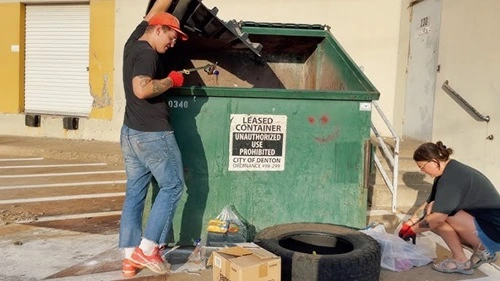Yes, selling expired goods can be illegal in the United States, depending on the type of product and the circumstances. While certain non-perishable goods may legally be sold after their expiration date, selling expired perishable items such as food, medication, or baby formula can lead to significant legal penalties due to safety concerns.
Legal Framework Surrounding Expired Goods
Food Products
1. Federal Food, Drug, and Cosmetic Act (FDCA):
- The FDCA prohibits the sale of adulterated or misbranded food products. While the federal government does not mandate expiration dates for most foods, selling expired perishable items like dairy, meat, or seafood may violate safety standards if the product is spoiled.
- States often have stricter regulations that prohibit the sale of expired perishable foods outright.
2. Labeling Laws:
- “Sell By,” “Use By,” and “Best By” Dates: These labels indicate quality rather than safety for most products. While selling items past these dates is generally allowed for non-perishable goods, doing so without clear disclosure to consumers can result in violations of consumer protection laws.
3. State-Specific Laws:
- California: It is illegal to sell perishable food products after their labeled expiration date.
- New York: Retailers cannot sell baby formula or over-the-counter medication past their expiration dates.
Medications and Supplements
Expired medications are regulated under stricter standards:
1. FDA Regulations:
Selling expired prescription or over-the-counter drugs is illegal. The FDA mandates expiration dates to ensure safety, potency, and effectiveness.
2. State Pharmacy Boards:
Pharmacies face penalties for dispensing expired medications, including fines and potential loss of licensure.
Baby Formula and Infant Foods
The sale of expired baby formula is explicitly prohibited under federal law. The Infant Formula Act requires manufacturers to include expiration dates and prohibits the sale of expired products due to safety concerns.
Cosmetics and Personal Care Products
While not federally regulated, expired cosmetics and personal care products may violate state consumer protection laws if sold without disclosure. Selling such products can lead to liability claims if they cause harm.
Risks and Penalties for Selling Expired Goods
1. Criminal Penalties
Selling expired goods can result in criminal charges, particularly if the products cause harm to consumers:
- Fines: Penalties can range from $100 to several thousand dollars per violation.
- Imprisonment: In severe cases, such as knowingly selling dangerous expired items, individuals can face misdemeanor or felony charges with potential jail time.
2. Civil Liability
Consumers harmed by expired goods can file lawsuits against sellers, seeking damages for medical expenses, lost wages, or pain and suffering.
3. Business Penalties
- License Revocation: Retailers, pharmacies, or food establishments can lose their licenses for selling expired goods.
- Reputational Damage: Selling expired items can harm a business’s reputation, resulting in lost customer trust and revenue.
Recent Cases and Developments
1. California, 2023:
A grocery chain was fined $100,000 for selling expired dairy products and improperly labeling their expiration dates. Regulators found repeated violations during inspections.
2. Texas, 2024:
A pharmacy faced penalties after a customer reported receiving expired over-the-counter medication. State authorities levied a fine and temporarily suspended the pharmacy’s operations.
3. Florida, 2024:
A convenience store was shut down for selling expired baby formula, leading to public outcry and increased enforcement by local health officials.
Exceptions and Legal Sales of Expired Goods
1. Non-Perishable Items:
Non-food items such as cleaning products, pet supplies, or certain cosmetics may legally be sold after their expiration date, as long as they are clearly labeled and do not pose a safety risk.
2. Discounted Sales:
Expired goods are sometimes sold at a discount in “clearance” sections. Sellers must ensure transparency about the expiration date to avoid misleading consumers.
3. Donations:
Many states allow food banks to accept donations of expired but non-perishable goods, provided they are still safe to consume.
Tips for Consumers and Sellers
For Sellers:
- Check Inventory: Regularly monitor inventory to ensure perishable items are removed before their expiration dates.
- Label Clearly: If selling items near or past their “best by” dates, ensure clear labeling and inform consumers.
- Know the Laws: Familiarize yourself with federal and state regulations to avoid penalties.
For Consumers:
- Read Labels: Check expiration dates before purchasing items, especially perishable goods, medications, or baby formula.
- Report Violations: Notify local health departments or consumer protection agencies if you find expired goods being sold.
Common FAQs
Q1. Can stores sell food past its expiration date?
Ans: Yes, for non-perishable items like canned goods, provided the product is safe to consume and properly labeled. However, selling expired perishable items is often illegal.
Q2. Is it illegal to sell expired medication?
Ans: Yes, selling expired prescription or over-the-counter medications is strictly prohibited by the FDA.
Q3. What happens if I accidentally buy expired goods?
Ans: You can typically return the item for a refund. If the product caused harm, you may have grounds for legal action.
Q4. Are there exceptions for discounted sales of expired goods?
Ans: Yes, some non-perishable goods can be sold at a discount, but sellers must disclose the expiration date to consumers.
Q5. Can expired goods be donated?
Ans: Yes, non-perishable expired goods are often accepted by food banks or shelters, provided they are safe to use or consume.


